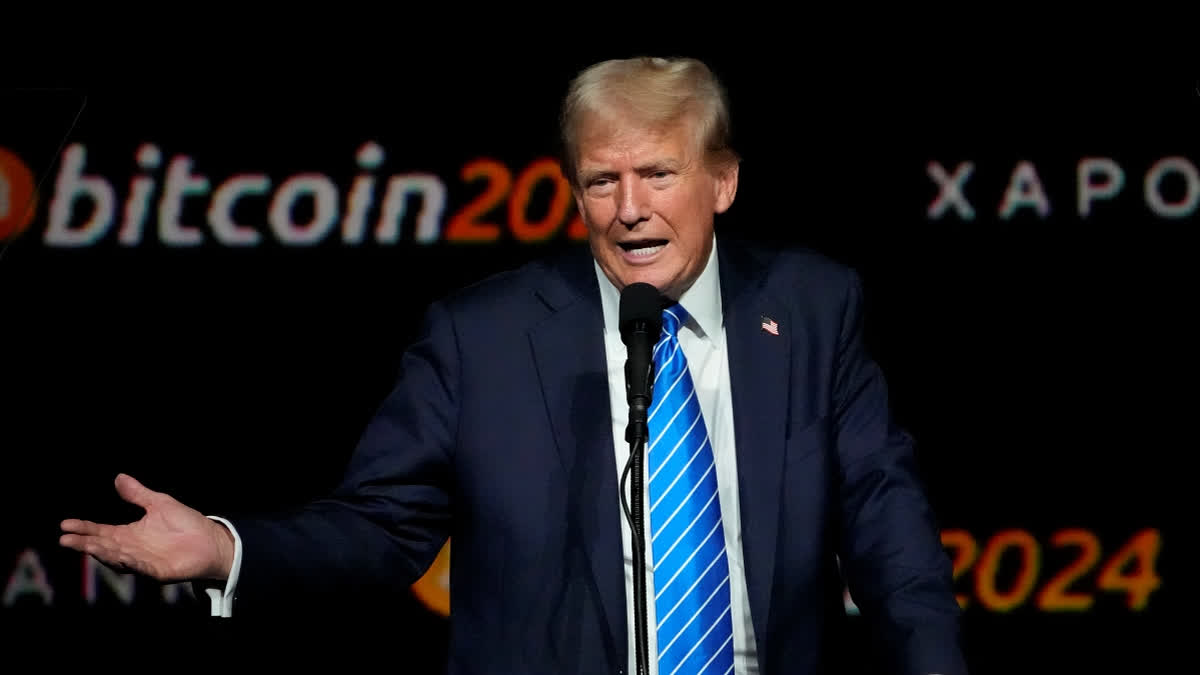New York:A judge Monday refused to throw out President-elect Donald Trump’s hush money conviction because of the U.S. Supreme Court's recent ruling on presidential immunity. But the overall future of the historic case remains unclear.
Manhattan Judge Juan M. Merchan's decision blocks one potential off-ramp from the case ahead of the former and future president's return to office next month. His lawyers have raised other arguments for dismissal, however. It's unclear when — or whether — a sentencing date might be set.
Prosecutors have said there should be some accommodation for his upcoming presidency, but they insist the conviction should stand. A jury convicted Trump in May of 34 counts of falsifying business records related to a $130,000 hush money payment to porn actor Stormy Daniels in 2016. Trump denies wrongdoing.
The allegations involved a scheme to hide the payout to Daniels during the final days of Trump’s 2016 presidential campaign to keep her from publicizing — and keep voters from hearing — her claim of a sexual encounter with the married then-businessman years earlier. He says nothing sexual happened between them.
A month after the verdict, the Supreme Court ruled that ex-presidents can’t be prosecuted for official acts — things they did in the course of running the country — and that prosecutors can’t cite those actions to bolster a case centred on purely personal, unofficial conduct.
Trump’s lawyers then cited the Supreme Court opinion to argue that the hush money jury got some improper evidence, such as Trump’s presidential financial disclosure form, testimony from some White House aides and social media posts made while he was in office.
In Monday’s ruling, Merchan denied the bulk of Trump’s claims that some of the prosecutors’ evidence related to official acts and implicated immunity protections.
The judge said that even if he found that some evidence related to official conduct, he’d still conclude that prosecutors’ decision to use “these acts as evidence of the decidedly personal acts of falsifying business records poses no danger of intrusion on the authority and function of the Executive Branch.”
Even if prosecutors had erroneously introduced evidence that could be challenged under an immunity claim, Merchan continued, “such error was harmless in light of the overwhelming evidence of guilt.” Prosecutors had said the evidence in question was only “a sliver” of their case.
Trump communications director Steven Cheung on Monday called Merchan’s decision a “direct violation of the Supreme Court’s decision on immunity, and other longstanding jurisprudence.”
“This lawless case should have never been brought, and the Constitution demands that it be immediately dismissed,” Cheung said in a statement. Manhattan District Attorney Alvin Bragg's office, which prosecuted the case, declined to comment.
Merchan's decision noted that part of the Supreme Court’s immunity ruling declared that “not everything the president does is official.” Trump's social media posts, for example, were personal, Merchan wrote. He also pointed to a prior federal court ruling that concluded that the hush money payment and subsequent reimbursements pertained to Trump’s private life, not official duties.
Trump, a Republican, takes office on Jan. 20. He's the first former president to be convicted of a felony and the first convicted criminal to be elected to the office. Over the last six months, his lawyers have made numerous efforts to get the conviction and the overall case dismissed.
After Trump won last month's election, Merchan indefinitely postponed his sentencing — which had been scheduled for late November — so defence lawyers and prosecutors could suggest next steps.
Trump's defence argued that anything other than immediate dismissal would undermine the transfer of power and cause unconstitutional “disruptions" to the presidency. Meanwhile, prosecutors proposed several ways to preserve the historic conviction.
Among the suggestions: freezing the case until Trump leaves office in 2029; agreeing that any future sentence won’t include jail time; or closing the case by noting he was convicted but that he wasn’t sentenced and his appeal wasn’t resolved because he took office. The last idea is drawn from what some states do when a defendant dies after conviction but before sentencing.
Trump's lawyers branded the concept “absurd” and took issue with the other suggestions, too. Trump was indicted four times last year. The hush money case was the only one to go to trial. After the election, special counsel Jack Smith ended his two federal cases. They pertained to Trump’s efforts to overturn his 2020 election loss and allegations that he hoarded classified documents at his Mar-a-Lago estate.
A separate state election interference case in Fulton County, Georgia, is largely on hold. Trump denies wrongdoing in all.
